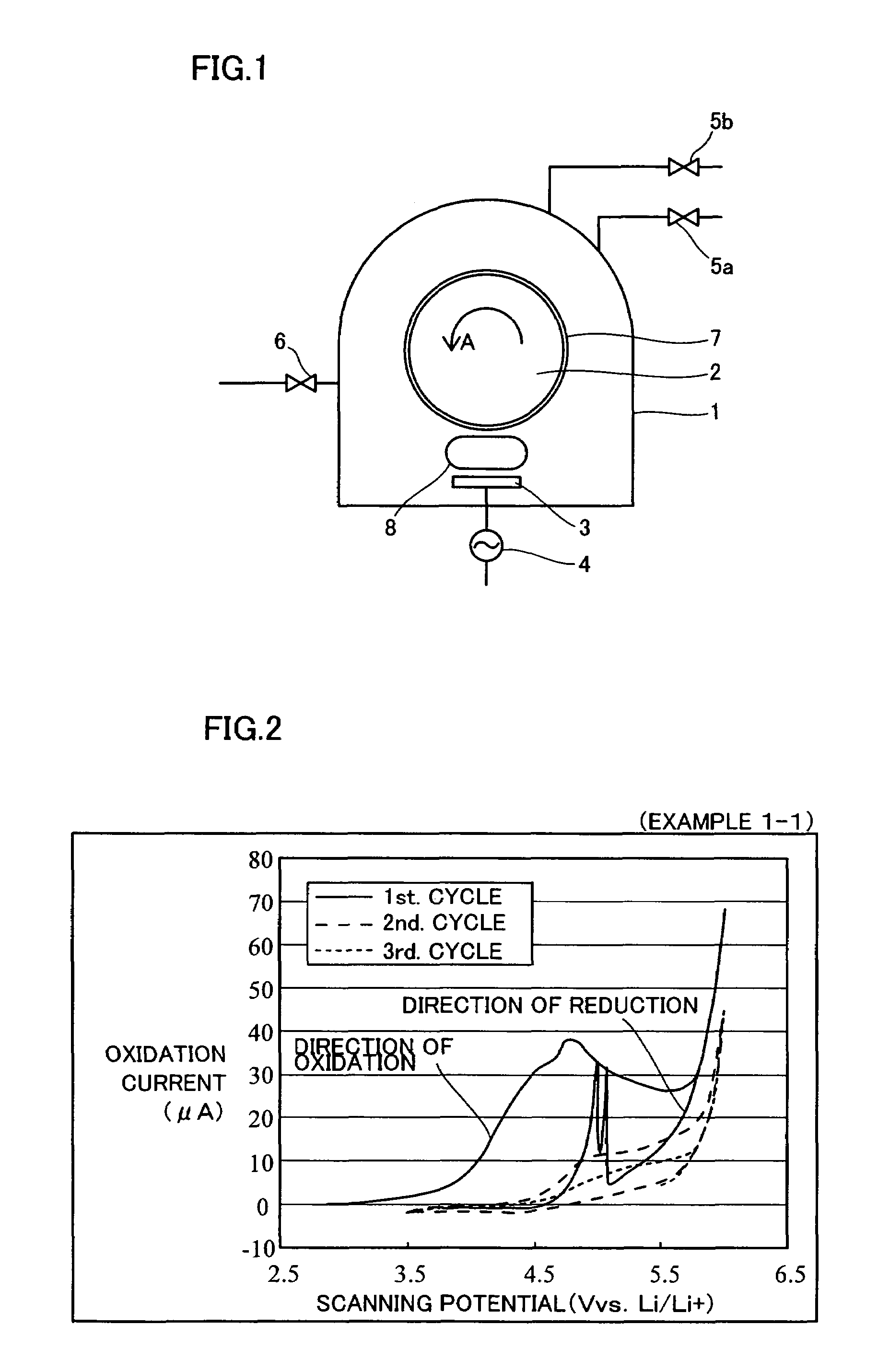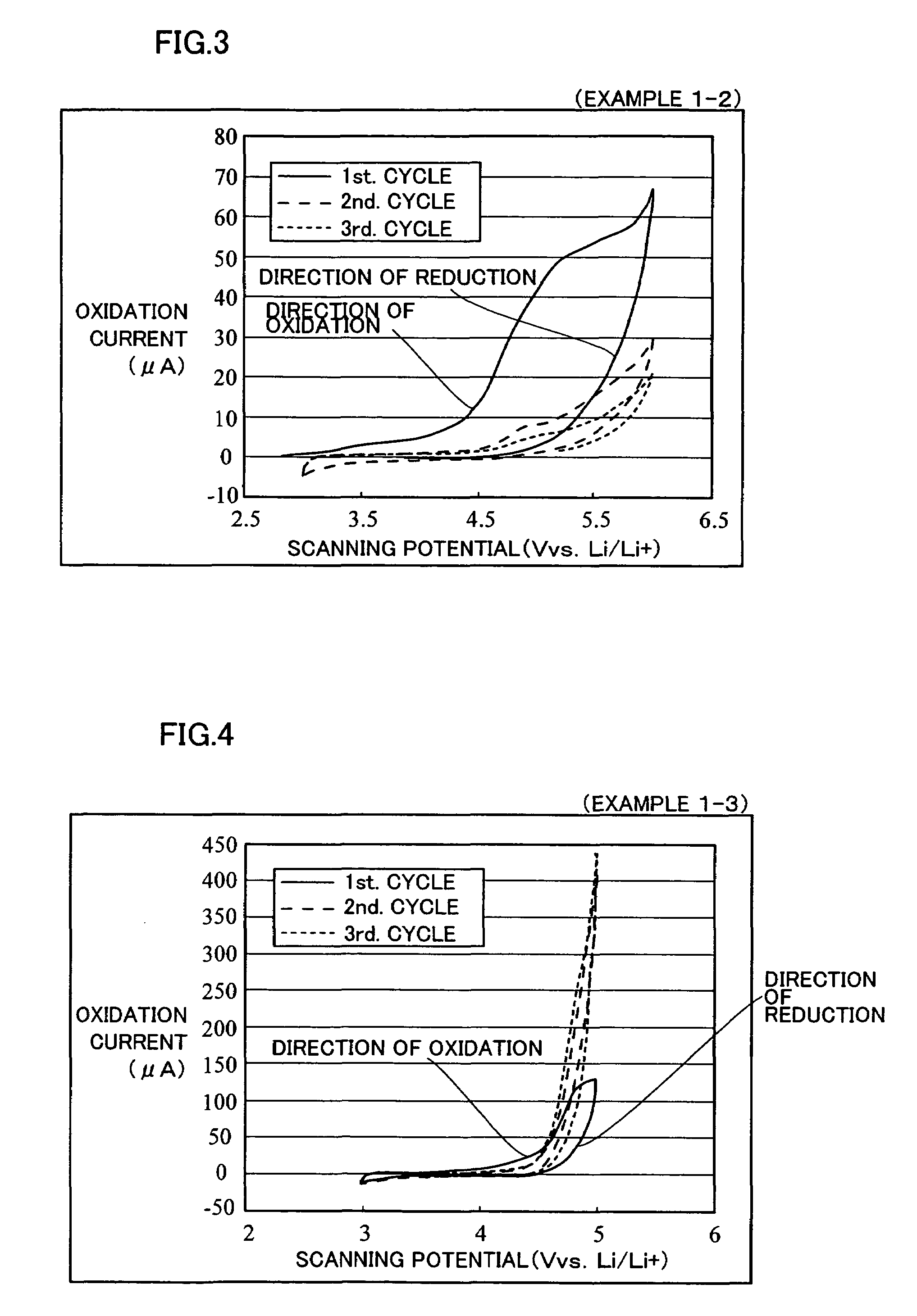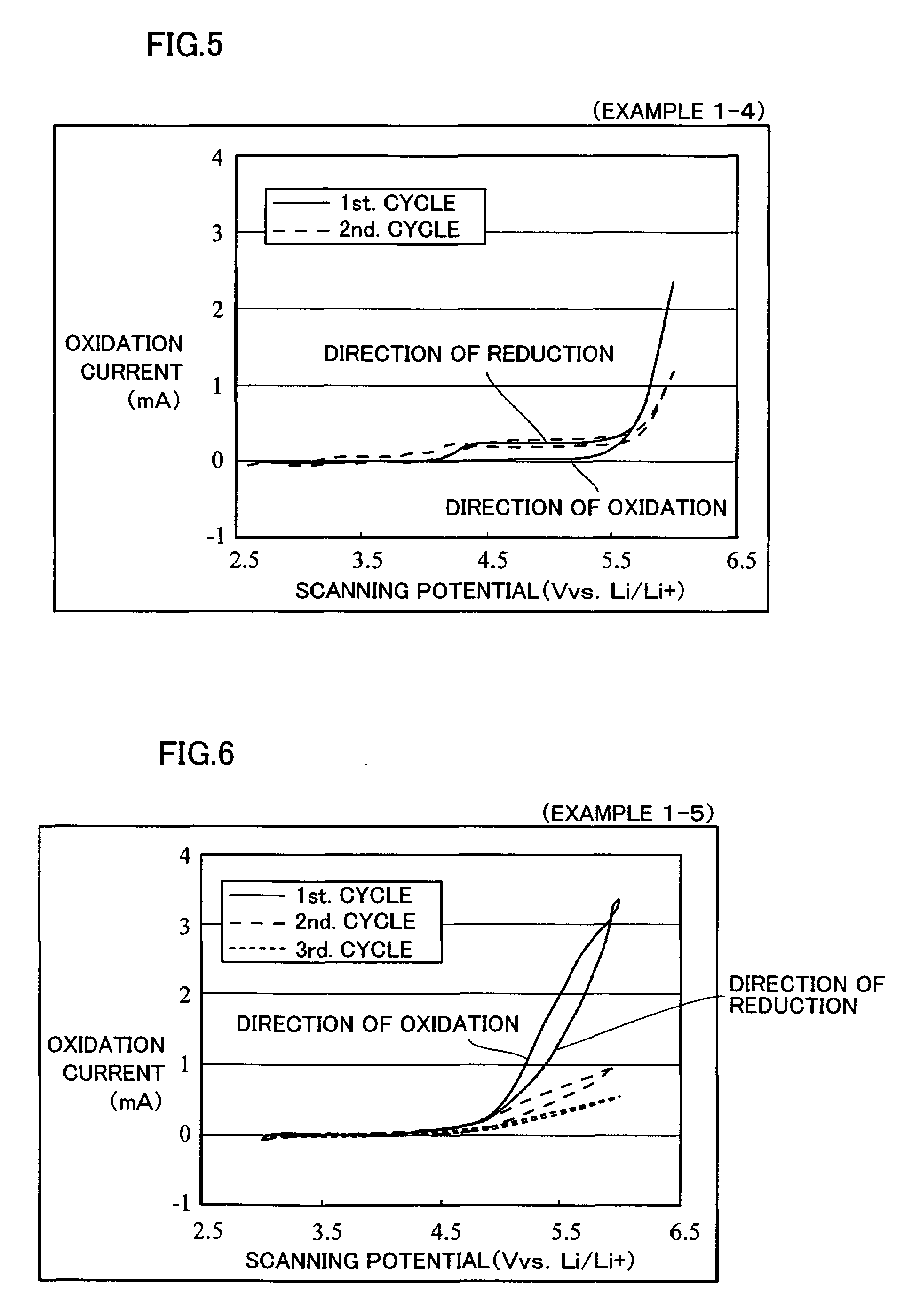Nonaqueous electrolyte battery
a technology of electrolyte battery and non-aqueous electrolyte, which is applied in the direction of non-aqueous electrolyte cells, cell components, electrochemical generators, etc., can solve the problems of inconvenient variation of character and difficulty in and achieve the effect of widening the selection range of electrolytes
- Summary
- Abstract
- Description
- Claims
- Application Information
AI Technical Summary
Benefits of technology
Problems solved by technology
Method used
Image
Examples
example 1-1 to example 1-5
[Preparation of Collector (Positive Electrode)]
[0041]The structure of a sputtering apparatus employed in Examples 1-1 to 1-5 is first described with reference to FIG. 1. This sputtering apparatus comprises a vacuum chamber 1, a water-cooled rotating drum 2 rotatably supported in the vacuum chamber 1, a target 3 set to be opposite to the water-cooled rotating drum 2, a high-frequency power source 4 for supplying high-frequency power to the target 3, an Ar gas introduction valve 5a for introducing Ar gas into the vacuum chamber 1, an N2 gas introduction valve 5b for introducing N2 gas into the vacuum chamber 1, and an evacuation valve 6 for controlling the degree of vacuum in the vacuum chamber 1.
[0042]When preparing each of collectors employed in common for nonaqueous electrolyte batteries according to Examples 1-1 to 1-5, a substrate 7 consisting of a polyimide film (Kapton 70V by Du Pont-Toray Co., Ltd.) was set on the water-cooled rotating drum 2 as shown in FIG. 1, while a TiN fi...
example 2-1 to example 2-5
[Preparation of Collector (Positive Electrode)]
[0066]In Examples 2-1 to 2-5, collectors of positive electrodes employed in common for nonaqueous electrolyte batteries according to Examples 2-1 to 2-5 were prepared by sputtering similar to that in the aforementioned Examples 1-1 to 1-5. In each of Examples 2-1 to 2-5, however, a ZrN film having a thickness of 0.3 μm was formed on a substrate 7 (see FIG. 1) consisting of a polyimide film under conditions shown in the following Table 2. ZrN is an example of the “compound” and the “interstitial nitride” in the present invention.
[0067]
TABLE 2Working Gas Flow RateAr: 50 (sccm)N2: 3 (sccm)Working Gas Pressure0.18 (Pa)High-Frequency Power 200 (W)Formation Time 120 (min)
[0068]Referring to the above Table 2, the forming conditions for the ZrN films employed in common for Examples 2-1 to 2-5 are working gas (atmospheric gas) flow rates: Ar gas (50 sccm) and N2 gas (5 sccm) consisting of N (nitrogen) which is a group 5 element, working gas pres...
example 3
[Preparation of Collector (Positive Electrode)]
[0085]In this Example 3, a collector of a positive electrode employed for a nonaqueous electrolyte battery according to Example 3 was prepared by sputtering similar to that for the aforementioned Examples 1-1 to 1-5. In Example 3, however, a TaN film having a thickness of 0.3 μm was formed on a substrate 7 (see FIG. 1) consisting of a polyimide film under conditions shown in the following Table 3. TaN is an example of the “compound” and the “interstitial nitride” in the present invention.
[0086]
TABLE 3Working Gas Flow RateAr: 50 (sccm)N2: 50 (sccm)Working Gas Pressure2.6 × 10−1 (Pa)High-Frequency Power200 (W)Formation Time120 (min)
[0087]Referring to the above Table 3, the forming conditions for the TaN film employed for Example 3 are working gas (atmospheric gas) flow rates: Ar gas (50 sccm) and N2 gas (5 sccm) consisting of N (nitrogen) which is a group 5 element, working gas pressure: 2.6×10−1 Pa, high-frequency power applied to target...
PUM
| Property | Measurement | Unit |
|---|---|---|
| pressure | aaaaa | aaaaa |
| distance | aaaaa | aaaaa |
| thickness | aaaaa | aaaaa |
Abstract
Description
Claims
Application Information
 Login to View More
Login to View More - R&D
- Intellectual Property
- Life Sciences
- Materials
- Tech Scout
- Unparalleled Data Quality
- Higher Quality Content
- 60% Fewer Hallucinations
Browse by: Latest US Patents, China's latest patents, Technical Efficacy Thesaurus, Application Domain, Technology Topic, Popular Technical Reports.
© 2025 PatSnap. All rights reserved.Legal|Privacy policy|Modern Slavery Act Transparency Statement|Sitemap|About US| Contact US: help@patsnap.com



